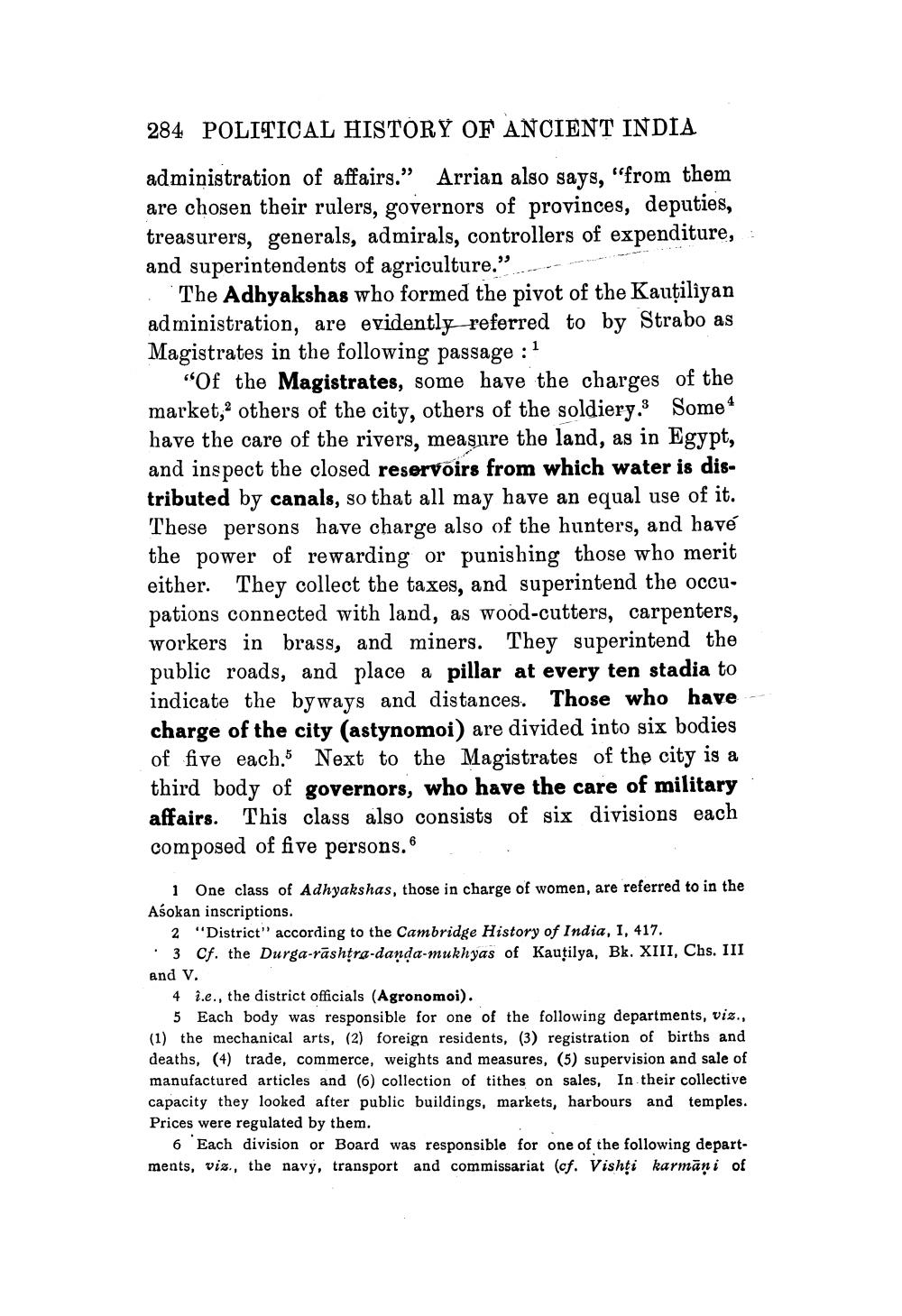________________
284 POLITICAL HISTORY OF ANCIENT INDIA
administration of affairs." Arrian also says, "from them are chosen their rulers, governors of provinces, deputies, treasurers, generals, admirals, controllers of expenditure, and superintendents of agriculture."
The Adhyakshas who formed the pivot of the Kauţiliyan administration, are evidently referred to by Strabo as Magistrates in the following passage:
"Of the Magistrates, some have the charges of the market, others of the city, others of the soldiery. Some1 have the care of the rivers, measure the land, as in Egypt, and inspect the closed reservoirs from which water is distributed by canals, so that all may have an equal use of it. These persons have charge also of the hunters, and have the power of rewarding or punishing those who merit either. They collect the taxes, and superintend the occupations connected with land, as wood-cutters, carpenters, workers in brass, and miners. They superintend the public roads, and place a pillar at every ten stadia to indicate the byways and distances. Those who have charge of the city (astynomoi) are divided into six bodies of five each. Next to the Magistrates of the city is a third body of governors, who have the care of military affairs. This class also consists of six divisions each composed of five persons."
1 One class of Adhyakshas, those in charge of women, are referred to in the Aśokan inscriptions.
2 "District" according to the Cambridge History of India, I, 417.
3 Cf. the Durga-rashtra-danda-mukhyas of Kautilya, Bk. XIII, Chs. III
and V.
4 .e., the district officials (Agronomoi).
5 Each body was responsible for one of the following departments, viz., (1) the mechanical arts, (2) foreign residents, (3) registration of births and deaths, (4) trade, commerce, weights and measures, (5) supervision and sale of manufactured articles and (6) collection of tithes on sales, In their collective capacity they looked after public buildings, markets, harbours and temples. Prices were regulated by them.
6 Each division or Board was responsible for one of the following departments, viz., the navy, transport and commissariat (cf. Vishți karmani of




